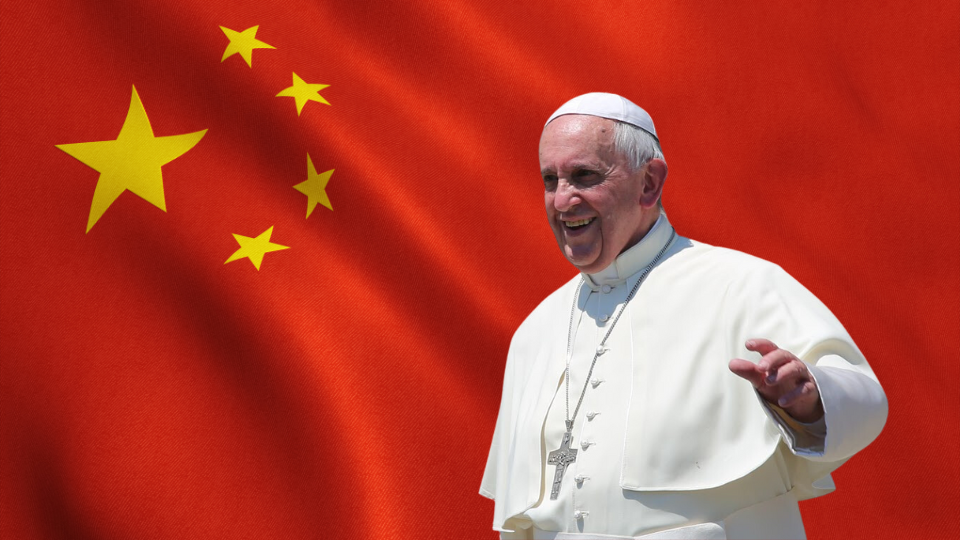
In a move aimed at restoring order within the diocese, Pope Francis has taken steps to rectify the canonical irregularity that arose when Chinese authorities transferred Bishop Shen Bin from Haimen to Shanghai without involving the Holy See. This decision by the Chinese authorities marks the second recent setback in relations between Beijing and the Holy See. However, the appointment of Bishop Shen Bin is accompanied by an insightful interview with Cardinal Pietro Parolin, the Vatican Secretary of State, who emphasizes that it represents a concession rather than a comprehensive solution to the ongoing challenges. Cardinal Parolin also sheds light on three unresolved issues despite the agreement reached between China and the Holy See on the appointment of bishops. He further affirms the Vatican's intention to open a liaison office in China, aiming to overcome obstacles and foster a true spirit of collaboration in implementing the agreement.
While the appointment of Bishop Shen Bin holds significance, it is Cardinal Parolin's interview that demands careful consideration. The Cardinal promptly points out that just a month after the renewal of the provisional agreement, Chinese authorities installed Bishop Yujiang Giovanni Peng Weizhao as an auxiliary bishop of the unrecognized Diocese of Jianxi, without any consultation or notification to the Holy See.
This pattern of sidelining the Holy See is further exemplified when Cardinal Parolin reveals, "The decision to take time before publicly commenting on the case was due to the need to carefully evaluate both the pastoral situation of the Diocese of Shanghai, recognized by the Holy See and without a bishop for too long, and the opportunity to transfer Mons. Shen Bin, a respected shepherd. Both transfers were made without the involvement of the Holy See."
Cardinal Parolin denounces this approach, stating that it "seems to disregard the spirit of dialogue and collaboration established between the Vatican and the Chinese authorities over the years and which found a reference point in the Agreement." These carefully chosen words attest to the Vatican's complete disagreement with the actions taken. Simultaneously, the Vatican Secretary of State highlights the Pope's decision to rectify the canonical irregularity in Shanghai, stressing the fundamental pastoral intention to enable Bishop Shen Bin to carry out his ministry with greater serenity, promoting evangelization and fostering ecclesial communion.
In a cryptic message directed towards Bishop Shen Bin, Cardinal Parolin expresses hope that, in agreement with the authorities, he can contribute to finding just and wise solutions to long-standing issues within the Diocese. These issues include the unresolved positions of two auxiliary bishops, Mons. Taddeo Ma Daqin, who remains impeded, and Mons. Giuseppe Xing Wenzhi, who retired.
These references are not random but hold significance. Following the death of Bishop Aloysius Jin Luxian of Shanghai in 2013, the Holy See had yet to appoint a successor, while his auxiliary, Thaddeus Ma Daqin, has been under house arrest since 2012.
Cardinal Parolin further emphasizes that the text of the agreement remains confidential as it has not yet received final approval, indicating the Holy See's hope for further improvements. The Cardinal asserts that the agreement revolves around the fundamental principle of consensus in decisions regarding bishops. When new and unforeseen situations arise, he emphasizes the need to resolve them in good faith, with foresight, and by revisiting the principles that guided its drafting.
With a clear intention to address concerns, Cardinal Parolin asserts that the Holy See is actively seeking to clarify important points with their Chinese counterparts. He highlights instances where Chinese authorities exploited possible misconceptions regarding the agreement, such as the appointment of Bishop Peng as an auxiliary bishop of the non-recognized Diocese of Jianxi. In Bishop Shen Bin's case, they leveraged the notion of a transfer, despite all episcopal appointments, including diocesan assignments, being pontifical appointments. There is no concept of a transfer as a mere administrative relocation.
Expanding on this topic, Cardinal Parolin emphasizes that transfers are not a canonical anomaly but a part of the worldwide "physiology of Church governance" when pastoral needs and the good of souls necessitate it. He explains that even in China, if a suitable candidate cannot be found within a vacant diocese, it is beneficial to consider candidates from beyond its boundaries.
While the Holy See does not oppose the transfer of bishops, the problem arises when it is done non-consensually. Cardinal Parolin underscores that adhering to the agreed-upon process allows for the avoidance of such difficulties. He states, "It is important, therefore, I would say essential, that all episcopal appointments in China, including transfers, be made consensually, as agreed, and in keeping with the spirit of dialogue between the Parties."
In a message seemingly directed at the Chinese counterparts, Cardinal Parolin calls for joint efforts to prevent disharmony that can create discord and misunderstandings within Catholic communities. He emphasizes that proper implementation of the agreement, along with sincere dialogue, serves as means to achieve this objective.
Highlighting urgent issues that demand attention, Cardinal Parolin emphasizes the establishment of an Episcopal Conference with appropriate statutes to enhance the bishops' responsibility. He stresses the importance of regular communication between Chinese bishops and the Bishop of Rome for effective communion, noting that these elements are integral to the structure and doctrine of the Catholic Church, which the Chinese authorities have stated they do not wish to alter.
Cardinal Parolin acknowledges that excessive suspicions impede the work of evangelization and asserts that Chinese Catholics, including those considered "clandestine," deserve trust as they genuinely strive to be loyal citizens while seeking respect for their conscience and faith. This statement alludes to the pressures faced by Chinese Catholics to register with the Patriotic Association, the government body overseeing Chinese bishops, following the initial agreement. In essence, to allow Jesus to "become Chinese with the Chinese," it is crucial to overcome mistrust of Catholicism, which is not a foreign religion, let alone contrary to the culture of the Chinese people.
Explaining his decision to grant the interview, Cardinal Parolin expresses the belief that Catholic faithful, both within China and beyond, have the right to be adequately informed. He reveals that numerous requests have been received from ecclesial communities and individuals genuinely interested in the matter.
Furthermore, Cardinal Parolin reaffirms the intention to establish a stable office for the Holy See's liaison in China. This office aims not only to facilitate dialogue with civil authorities but also to contribute to the complete reconciliation within the Chinese Church, fostering its path toward a desirable state of normalcy.
In conclusion, the Cardinal emphasizes that the Church's service, guided by the Gospel rather than economic-political interests, is evident in its dedication to the progress of peoples—both in their human and spiritual aspects. He reiterates the historic nature of the Agreement signed, which now requires full and correct implementation. In this crucial phase, he highlights the need for goodwill, consent, and collaboration, which enabled the conclusion of this far-sighted pact. The Holy See remains determined to fulfill its role and continue the journey.
Consequently, Pope Francis's decision effectively rectifies the unilateral Chinese action of transferring Bishop Shen Bin to Shanghai, where he was officially installed on April 4.
Bishop Shen Bin, hailing from a Catholic family and aged 52, pursued his studies in philosophy at Sheshan Seminary in Shanghai and theology at the National Seminary in Beijing. He has been a priest since 1996 and served as the bishop of Haimen since 2010, with a pontifical mandate and recognition from political authorities. Bishop Shen Bin is an internationally recognized figure, having participated in international peace meetings organized by the Community of Sant'Egidio in Münster and Osnabrück in 2017, as well as in Bologna in 2018. He was also among the three bishops selected to represent the Catholic Church in the 14th National Committee of the Chinese People's Political Consultative Conference, comprising 11 Catholic representatives.
In 2017, the Holy See entrusted him with the task of ordaining four new priests in Shanghai, as the see had remained vacant since the passing of Bishop Jin Luxian, with auxiliary Bishop Ma Daqin under house arrest. Last September, Bishop Shen Bin was jointly appointed as the President of the Council of Chinese Bishops—an organization unrecognized by the Holy See—alongside Bishop Giuseppe Li Shan of Beijing, who assumed the role of President of the Patriotic Association. This appointment signified a moment of relaxation, as it placed a bishop nominated in 2007 with the dual approval of China and the Holy See at the helm of a government body like the Patriotic Association.
This article was originally published on ACI Stampa.

Andrea Gagliarducci is an Italian journalist for Catholic News Agency and Vatican analyst for ACI Stampa. He is a contributor to the National Catholic Register.








